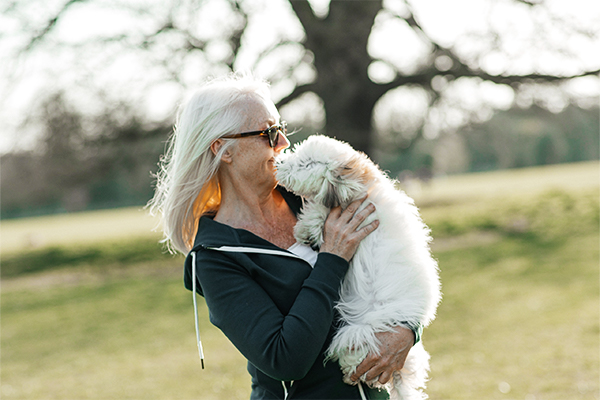It’s not uncommon for people to want to get a dog as they approach retirement. It’s a time when many people are looking for companionship and a sense of purpose. Besides, what could be better than having a cute, furry friend join you on all your adventures?
But before you go out and adopt the first puppy you see, it’s important to do your research and choose a breed that will be a good fit for an elderly dog owner. Here are some things to keep in mind:
1. Your energy levels
As you get older, it’s natural for your energy level to decrease. This is something you’ll need to take into account when choosing a dog breed. If you’re looking for a low-maintenance companion, consider species like the Basset Hound or the Beagle. These dogs are known for being laid-back and easy-going. This is great for seniors who want a relaxed pet.
2. Your living conditions
Do you live in a house with a big backyard? Or are you more of an apartment dweller? Your living situation will play a significant role in choosing the right dog breed.
For example, if you have a lot of space, you might want to consider a giant breed like the Labrador Retriever or the Golden Retriever. If you’re limited in space, a small breed might be the best choice for you. Breeds like the Chihuahua or the Yorkshire Terrier don’t need much space to run around and are content living in an apartment.
Most seniors choose a smaller breed because they’re easier to take care of and require less exercise.
3. Your activity level
Do you like to go for long walks or runs? Or are you more of a couch potato? Again, this will be a significant factor in choosing the right breed.
If you’re an active person, you’ll want a dog that can keep up with you and has lots of energy. Breeds like the Border Collie or the Australian Cattle Dog are good choices.
But if you’re not as active, you might want to look into breeds known for being less active, such as the Basset Hound or the Bulldog.
4. Your unique companionship needs
Are you looking for a playful and friendly dog that’s not needy? Some breeds, like the Labrador Retriever, are social and outgoing. Other breeds, like the Akita, are reserved around strangers. Consider what you’re looking for in a companion before choosing a breed.
For example, if your hobby is mushroom hunting, you should look for a breed that can accompany you on those long walks through the woods, like the Cocker Spaniel or the Labrador Retriever.
For seniors who like night walks with their dog, breeds like the Doberman Pinscher or the German Shepherd are perfect since they’re known for being alert and protective.
5. Your allergies
Some hypoallergenic breeds might work for you if you’re allergic to dogs but still want to be a pet owner. These breeds don’t shed as much as other dogs, producing less dander — the protein that causes allergies.
Breeds like the Bichon Frise or the Maltese are good choices for people with allergies.
6. Your schedule
All dogs need exercise, but some breeds require more than others. For example, if you don’t have much time to walk your dog, then a breed that doesn’t need as much exercise, like the Basset Hound or the Shih Tzu, might be a good fit.
Smaller legs mean shorter walks — that’s the general rule of thumb. Breeds like the Basset Hound or the Pekingese are good choices for people who don’t have much time to walk their dogs. These breeds are content with shorter walks and don’t need much exercise.
7. Your need for affection
The most important thing is to pick a dog you love and who will love you back. You’ll always be best friends if you have a strong bond with your dog, no matter what breed you choose.
